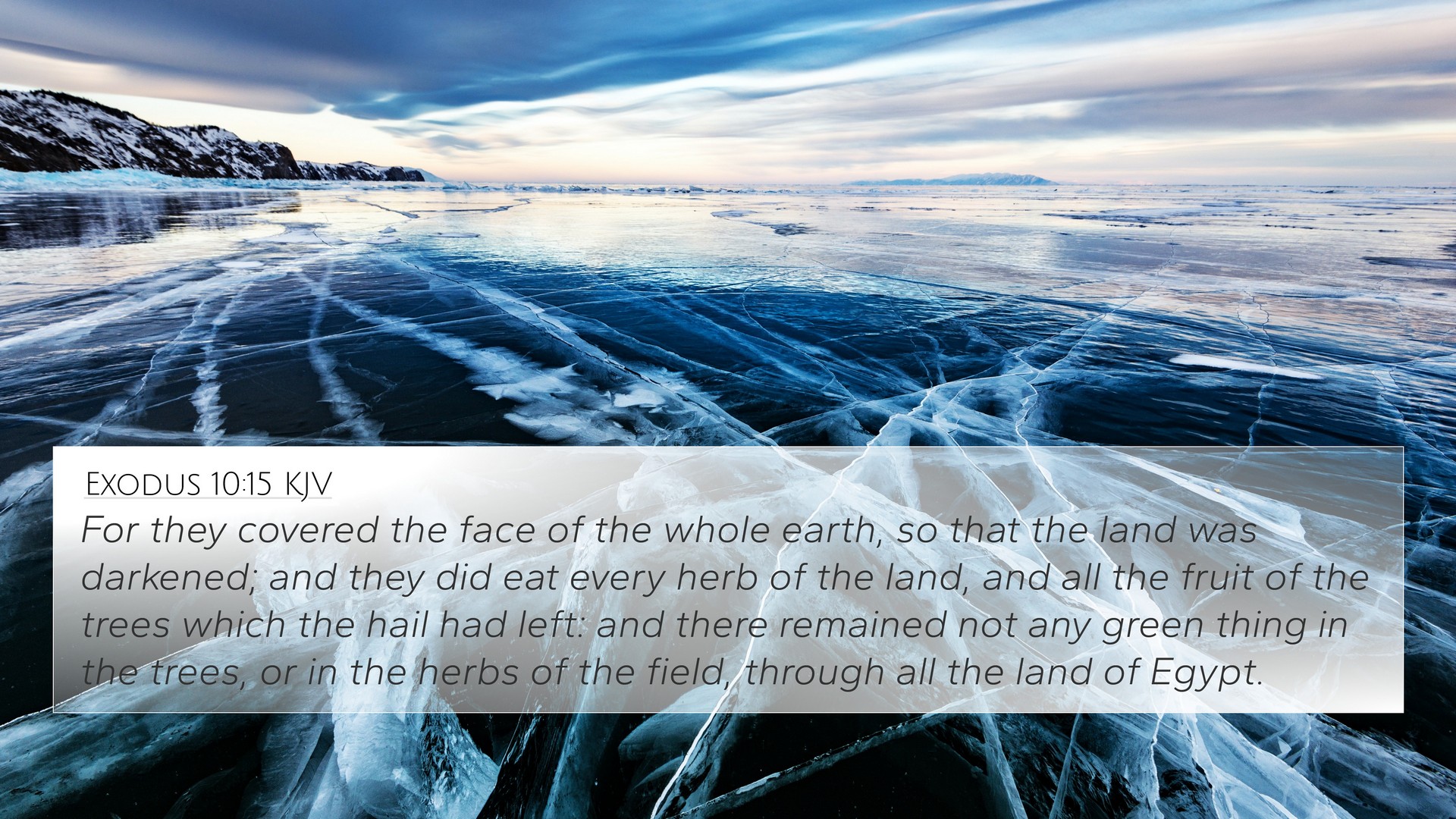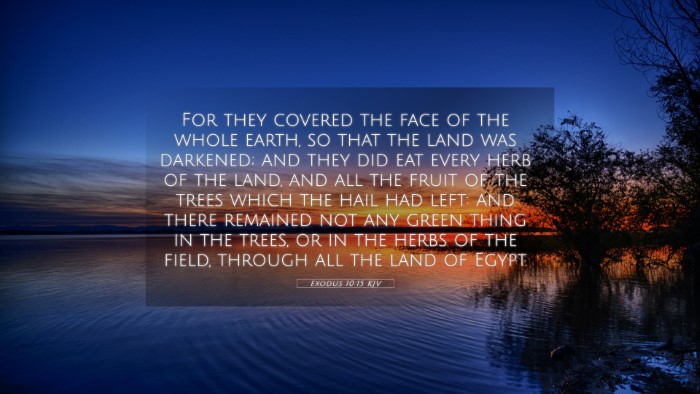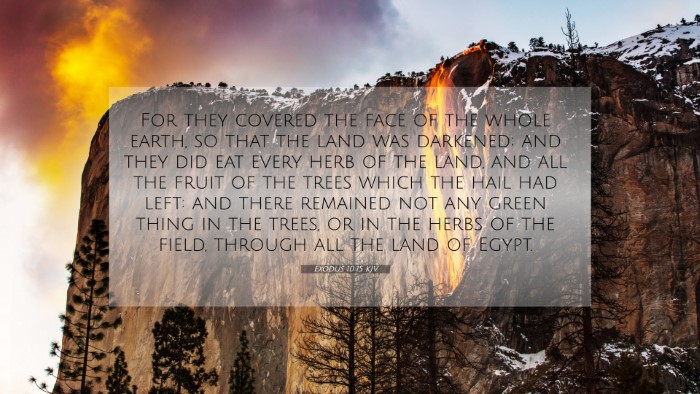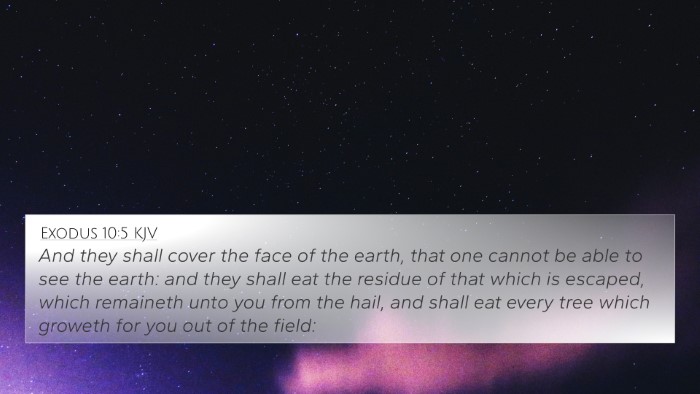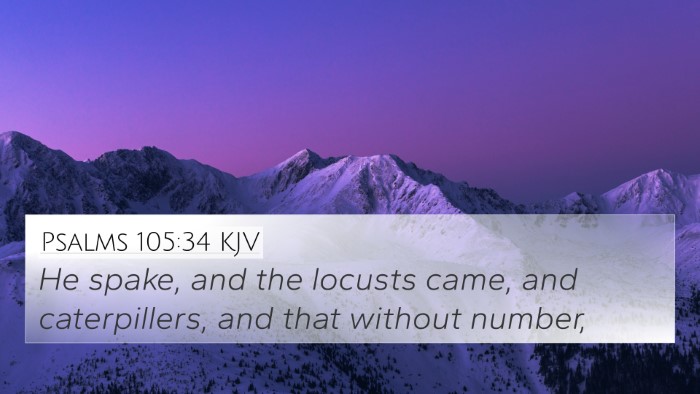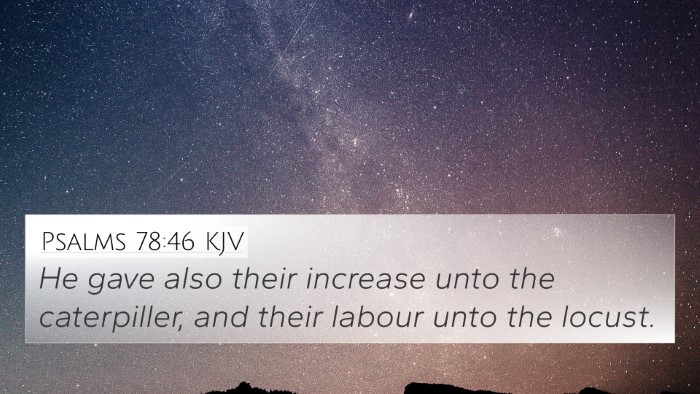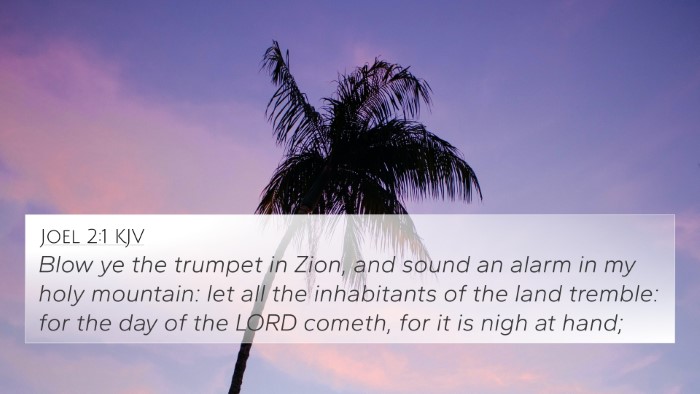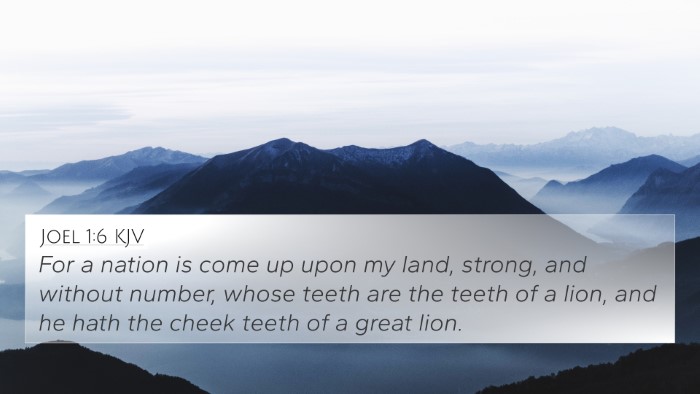Understanding Exodus 10:15
Exodus 10:15 states: "For they covered the face of the whole earth, so that the land was darkened; and they did eat every herb of the land, and all the fruits of the trees which the hail had left: and there remained not any green thing in the trees, or in the herbs of the field, through all the land of Egypt." This verse describes one of the ten plagues of Egypt, signifying the devastating impact of the locusts that God sent as a judgment against Pharaoh and the Egyptians.
Commentary Insights
This section synthesizes insights from notable public domain commentaries such as those by Matthew Henry, Albert Barnes, and Adam Clarke.
Matthew Henry's Commentary
Henry emphasizes that the plague of locusts was a direct consequence of Pharaoh's hardness of heart and refusal to let the Israelites go. This severe infestation not only darkened the land by covering it entirely but also led to a complete devastation of their agricultural produce, highlighting God's power over nature and His ability to bring judgment upon a rebellious nation.
Albert Barnes' Commentary
Barnes notes that the locusts were a divine instrument meant to bring Pharaoh to repentance. He reflects on the imagery of darkness and destruction, indicating the totality of the judgment. By consuming every green thing, the locusts served as a sign of the Egyptians’ declining prosperity and the futility of their gods, who were unable to protect them from this catastrophe.
Adam Clarke's Commentary
Clarke provides a vivid description of the locusts' physical appearance and the sheer volume of their numbers. He associates this event with the theme of divine retribution and the stark contrast between the land's previous fertility and the desolation that has ensued. Clarke also discusses the cultural implications of a failed harvest on Egyptian society and economy.
Significant Themes in Exodus 10:15
- Judgment: This verse exemplifies God's judgment against Egypt for their oppression of the Israelites.
- Divine Authority: It affirms God's sovereignty over nature, invoking a natural disaster to fulfill His purposes.
- Repentance: The event serves as a plea for Pharaoh to turn from his stubbornness in the face of divine warning.
- Futility of Idolatry: Shows the failure of Egyptian deities to protect them from divine judgment.
Bible Verse Cross-References
This verse has meaningful connections with several other scriptures:
- Exodus 8:24: The plague of flies parallels the disastrous consequences of disobedience.
- Exodus 9:25: The impact of the hail on crops foreshadows the total destruction wrought by the locusts.
- Joel 1:4: References the "locusts" as a metaphor for devastation, similar to the judgment experienced in Egypt.
- Psalm 105:34-35: Reflects on the devastation caused by locusts during the plagues in Egypt.
- Revelation 9:3: The imagery of locusts in eschatological contexts draws a connection between judgment across testaments.
- Isaiah 33:4: Illustrates the concept of destruction and devastation, linking God's judgment theme across scriptures.
- John 10:10: Contrasts the destruction brought by the enemy with the life offered by Christ.
Applications of Exodus 10:15
Understanding this verse requires considering its implications for both individual faith and collective worship:
- Reflection on Disobedience: Encourages individuals and nations to assess their paths and seek alignment with God's will.
- Acknowledgment of God's Power: Reinforces the belief in God's ability to intervene profoundly in human affairs.
- Call to Repentance: Acts as a reminder that persistent sin leads to inevitable consequences.
Connecting Themes: How Exodus 10:15 Relates to the Broader Biblical Narrative
This verse can be viewed as part of a larger narrative that illustrates God's ongoing relationship with humanity, particularly His covenant with Israel and His authority over all creation. The judgment of Egypt connects with the theme of divine redemption found in the New Testament, showing God's consistent call for repentance throughout history.
Conclusion
Exodus 10:15 serves not only as a historical account of God's judgment on Egypt but also as a thematic element that resonates throughout the Bible. The locusts symbolize God's ability to bring about devastation as a means of turning hearts back to Him, linking it to other covenant narratives and invoking contemplative cross-references.
In summary, this verse connects deeply with both immediate contexts and broader theological themes, making it a rich focal point for study and reflection.
